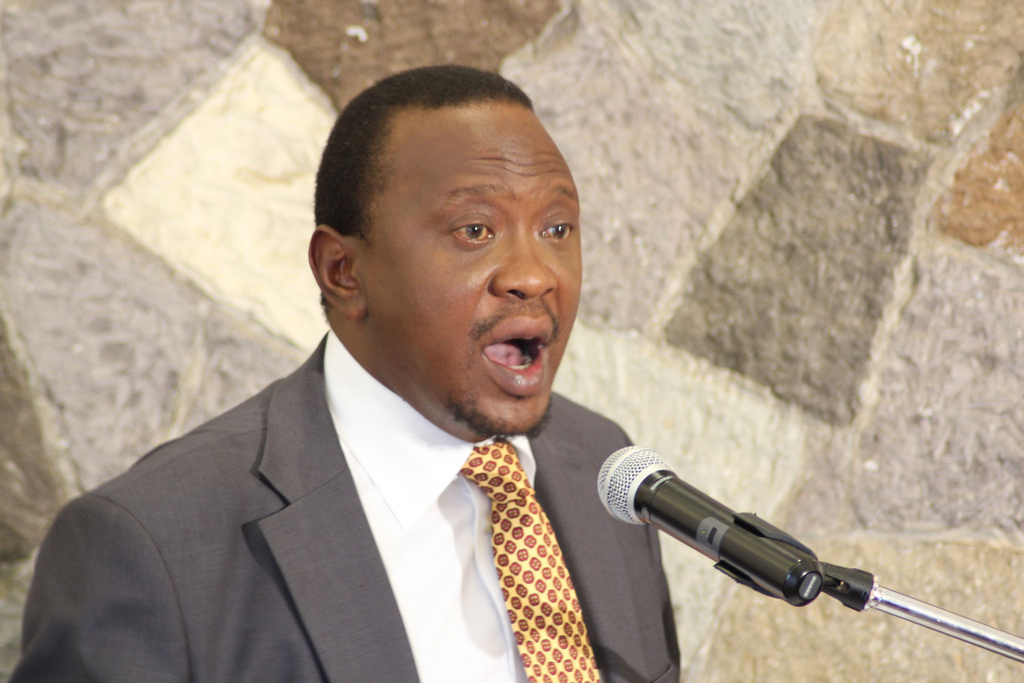 Following one of the most tightly fought elections in Kenya to date, Uhuru Kenyatta was recently announced as the country’s new president.
Following one of the most tightly fought elections in Kenya to date, Uhuru Kenyatta was recently announced as the country’s new president.
The news came after the Independent Electoral and Boundaries Commission (IEBC) conducted an audit of its final tallies to ensure it could rebuff the criticisms – made by supporters of second-place-candidate Raila Odinga – that some provinces had counted more votes than there were registered voters. Odinga’s Coalition of Reforms and Democracy (CORD) will bring their complaints to the Kenyan Supreme Court but their protests are being outweighed by the ‘thumbs up to polls’ given by the EU mission and the approval given by the African Union and Commonwealth observer groups. The recent groundswell of opinion supports their verdict: Kenya has a new president, who has been freely and fairly elected.
What does Kenyatta’s victory mean for Kenya’s next five years? There are big changes on the way that will challenge and re-design the country as we have come to know it.
When confronted about his large ownership of land in the second televised presidential debate, Kenyatta maintained that he worked on the principle of ‘willing buyer and willing seller’. This market-friendly attitude is certain to influence approaches towards oil exploration and drilling that are set to rock Kenya. Upstream oil companies have been watching the election closely to determine the levels of political stability and compliance in the country. They will read this election as a positive indicator that the incoming government is willing and able to work with them on their own terms, offering stable contracts and a ‘hands-off’ relationship between private firms and public bodies such as the National Oil Corporation of Kenya.
More generally, expect emphasis in the new Kenya on private sector development that transforms the way in which the state is constituted, and the stance it takes to questions concerning the average citizen. Though Uhuru Kenyatta is the son of independence leader Jomo Kenyatta, there will be almost nothing in common with his father’s rule, which combined nationalism and appeals to tradition or African heritage. Even more so than previous president, Mwai Kibaki, Uhuru Kenyatta is a capitalist. Following his brand of capitalism, he is likely to strengthen the connections between business leaders and politicians, often preferring the former over the latter. Consequently, in the next five years, we may see a drift towards ‘illiberal state-building’ – a new trend in African politics described by Jones et. al., and exhibited in its most extreme forms in the contemporary cases of Angola, Rwanda, Sudan and Ethiopia. This form of state building seeks to enhance state capacity in a globalised world in order to extend the power and influence of a country’s ‘substantial minorities’. In the case, the Nairobi elite.
Certainly Kenyatta’s administration will take up with vigour the need to facilitate those private sector groups that are seen to be driving Kenya’s development, firms such as Equity Bank, Safaricom, East African Breweries and Brookside Dairies. Most importantly, companies that depend on the state’s facilitation will expand, supporting investments into the insurance industries and perhaps innovations in private banking (such as M-Shwari), which are likely to have mixed effects on the welfare of the poor. Top on the agenda of a forward-looking economic elite will be ‘Silicon Savannah’ projects, which hope to make Kenya an innovative ICT hub for the wider continent of Africa.
This stress on the private sector will be promoted and justified in rhetoric that exalts entrepreneurship and meritocracy. Now a household phrase, ‘Vision 2030’ will continue to be used to persuade the majority wananchi (citizens) that they must be patient in waiting for trickle-down growth. Given the preference for an international or globalised economy in the elite Nairobi circles in which Kenyatta moves, there is likely to be little change for the average citizen facing inflationary pressures on food and fuel prices, or any leadership taken on the issue of whether foreign manual labour should be used for the country’s infrastructure projects. Kenyatta’s government is also likely to have no qualms about the way large firms operate simultaneously in US dollars and Kenyan Shillings, protecting their capital from inflation, and he will most probably give ample space for state-associated businesses that store capital abroad so as to engage in tax-avoidance. As under Kibaki, there will be emphasis on the need for Nairobi to exhibit a ‘24-hour’ economy that gives implicit support for the city’s prostitution and gambling industries.
The big challenge to Kenyatta’s rule will be his trial at the International Criminal Court (ICC), which is due to start this July and seems certain to become a stumbling block for Western diplomats seeking to work with him. Kenyatta seems set on dealing with this challenge head-on, cooperating with the courts whilst maintaining his innocence in a manner reminiscent of Paul Kagame: his actions, Kagame claimed, were relatively small and necessary at a time when the alternative was chaos. More troubling are the suspicions that Kenyatta might be seeking to eliminate witnesses that could stand against him, putting his willingness to comply with the court in a new light. Whatever the outcome, the ICC case looks likely to dominate his international exchanges for the foreseeable future. Domestically, however, Kenyatta’s rhetoric will be firmly focused on the country’s development and the need to move towards a new era of African prosperity, pushing Kenya beyond the precious 5% GDP growth rate.
Get ready for a fast and merciless new Kenya that rushes forward the private sector and unites economic and political elites as a dominant and unapologetic new force for state-building.
A version of this post appeared on Democracy in Africa.






No Comment